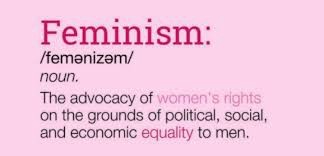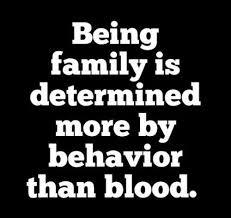Marcia Sirota's Blog, page 24
April 20, 2019
When Victims of Abuse Justify their Abuser’s Behavior.
Lately, I’ve been noticing how a lot of people who are in abusive relationships have a habit of minimizing the bad behavior of their abusers. They rationalize and justify the other person’s behavior and it allows them to tolerate the unacceptable.
It’s sad that people are being abused but it’s even sadder that those who are most vulnerable seem to be protecting their abusers and creating justifications for their hurtful behavior. These victims of abuse need to see the truth of what’s happening to them, and they need to make it stop. So why aren’t they doing this?
In general, people who find themselves in abusive relationships as adults have also experienced childhood abuse. The traumatic experiences of their childhood set them up for future abusive relationships. There are psychological reasons for this.
When a child grows up being abused, it damages their sense of self. Children naturally personalize their experiences, so if they’re loved and cherished, they grow up feeling good about themselves.
If children are abused, they grow up thinking that they’re bad. These children believe that they’re undeserving of good treatment and this belief extends into their adult life, at least on an unconscious level.
When a child grows up being abused, it’s not just that they’re being hurt. Abusers make sure that the child sees the abuse as “normal,” “acceptable,” and what the child “deserves.”
The abuser wants to keep on abusing, and they don’t want to deal with any upset feelings on the part of their victim, so they normalize their unacceptable behavior until the victim thinks that it’s just the way things are, and the way things have to be.
The abuser will blame the victim, telling them that they did something to “deserve” the mistreatment they received. Of course this is completely false. There’s nothing that a child could ever do that would justify their being abused. If a child misbehaves, even if they misbehave really badly, they deserve an appropriate consequence; never abuse.
Another thing the abuser does is called “crazy-making,” by saying that the victim’s (normal and appropriate) reactions to the abuse are bad, wrong, crazy and selfish.
The abuser accuses the victim of over-reacting. They say that the victim is being “controlling,” in trying to stop the abuser from being their “authentic self.”
Sometimes the abuser bullies the child into silence. If the child is crying, the abuser might say, “Shut up, or I’ll give you something to cry about,” essentially threatening to inflict even worse abuse if the child demonstrates any type of normal reaction.
Sometimes, the abuser makes their victim feel guilty and ashamed for having their perfectly appropriate reaction to the abuser’s bad behavior. The child is convinced by the devious, manipulative abuser that they’re the hurtful one.
After all of this bullying and crazy-making the victim is no longer able to mount an appropriate defense against the abuse.
Eventually, the abuser convinces their victim that this is the way normal relationships operate, or at least that this is the best that their victim can ever do. Again, these ideas are false. Abuse is never part of a normal relationship.
Abuse is bad and it’s wrong and it should never be seen as normal or acceptable. The victim can and should do better, and it’s not at all inevitable that they tolerate abuse in their future relationships.
As the abused person grows up, just like any other person they’re attracted to what’s familiar. All human beings are most comfortable with what they’re used to, even if what they’re used to is abuse.
Quite often, the child who was abused has developed something called “learned helplessness.” If no-one rescued them from the abuse, they’d come to believe that there was nothing that anyone could do to stop the abuse.
If someone has the trait of learned helplessness as an adult, they’ll be convinced that they’re unable to defend themselves from abuse or walk away from their abuser.
Another reason why victims of childhood abuse end up in abusive relationships as adults is that on an unconscious level they’re trying to sort out the abuse they experienced by recreating similar scenarios in their adult life.
It’s not that they “want” to be abused again, but deep down inside, they’re compelled to figure out and resolve their past experiences. They need to make sense of what happened to them, and why.
This brings us into adult relationships. The former victim of abuse is unconsciously attracted to a person who’s abusive and then when they get hurt, their reaction is abnormal. They don’t like the abuse, but immediately, like a reflex, they start to talk themselves out of their reaction.
They’ve internalized their abuser’s messages and automatically recite the party line: “It’s not so bad; I’m over-reacting; I did something to deserve it.”
This sets up the person either for a long-term abusive relationship or for multiple instances of abuse over the course of their life.
It doesn’t help that their present-day abusers will do exactly the same thing as their childhood abusers once did. Today’s abusers will tell them that their normal reactions to the abuse are bad and wrong and excessive; that the victim is abusive for having these reactions; that the abuser didn’t do anything so bad, or that the victim somehow “provoked” the abuser and therefore “deserved” what they got.
The tragedy of abuse is that it operates on two levels; there’s the abuse and there’s the crazy-making around the abuse.
Every victim of abuse needs to see that nothing they did could ever justify the abuse they experienced. The victims need to see that abuse is always about the abuser’s need to inflict harm and never about what the victim “provoked” or “deserves.”
Childhood victims of abuse are trapped in their situations and depend on other adults to rescue them from their abusers. Adult victims of abuse are capable of rescuing themselves but in order to do this, they need to see that the abuser’s behavior is completely unacceptable and that they are absolutely entitled to walk away from it.
Often, the best way that a victim of abuse can start to make a change is to enter into psychotherapy, where they’ll recognize that they were abused as a child and understand how they’ve gotten themselves into this recurrent pattern of abusive adult relationships.
Therapy offers victims of abuse the opportunity to heal the emotional wounds caused by the years of abuse; it enables them to silence the negative voice within that repeats the mantra that they deserve abuse and nothing more, and it empowers them to build strong reserves of self-love and self-compassion.
It’s not the victim’s fault that they’re being abused today, but it is their responsibility to change. With increased awareness, as well as increased self-love and self-care, a person who’s been a victim of abuse all their life can finally see the abuse and the abuser for what they are and walk away forever.
Sign up here for my free, monthly newsletter. May is all about self-love and self-care.
Childhood abuse can often lead to a pattern of abusive relationships in adulthood. For more insights and tools for coping, check out my new online course, “How to deal with difficult family members, once and for all.”
March 29, 2019
What Trump’s Feud With George Conway Reveals About the President
Like many people in Canada and the US these days, I’ve been intrigued by the Trump vs. George Conway feud. Trump has never shied away from a good scrap. The list of his adversaries wraps all around Washington and then some, and on a given weekend we can typically find him spewing out vicious tweets about his latest adversary.
George Conway has been a staunch Republican but he became disillusioned by Trump over the Muslim ban and ever since that time, he’s made it clear that Trump no longer has his support. It appears that Trump hasn’t been able to tolerate George’s defection – perhaps he’s that much more aggrieved because Conway is married to one of Trump’s most trusted advisors – and as a result, Trump has not hesitated to excoriate this latest betrayer.
Not that I’m offering up any diagnostic suggestions but Trump’s enraged response to Conway reminds me of something called “narcissistic rage,” or the fury experienced by someone with Narcissistic Personality Disorder when another person causes them to feel humiliated by publicly disagreeing with them or disapproving their behavior.
For his part, George isn’t shying away from a fight, and he gives at least as good as he gets. Just the other day, Conway wrote an op-ed in the Washington Post, saying that regardless of the findings of the Mueller report, Trump is guilty of being unfit for office.
The back-and-forth of Trump and Conway’s feud.
Earlier in the week, Trump had accused Conway of being jealous of his wife, Kellyanne’s success, and insisted that George Conway had been attacking Trump out of his own weakness. Trump also called George Conway a “stone cold loser” and a “whack job” in his recent tweets.
Conway, in turn, went to Twitter and diagnosed Trump with both Narcissistic and Antisocial Personality Disorder, citing the criteria straight out of every psychiatrist’s bible: the Diagnostic and Statistical Manual of Mental Disorders.
While I’m not sure why Conway is wasting his time engaging in an unwinnable war of words with Donald Trump – unwinnable because a reasonable, ethical person can never win against someone who has no limits to the bad behavior they’re willing to engage in – it appears that the president’s motivation is the strategy of “divide and conquer.”
Divide and conquer – a strategy for splitting up pairs.
Divide and conquer is a well-known tactic whereby an individual attempts to drive a wedge between two people who are closely connected. It’s a ploy used by highly aggressive, combative individuals who are prepared to do anything and everything to defeat those whom they perceive as their opponents.
The reason for this could be that Trump is jealous of an adversary who’s in a good relationship; this could be because Trump himself appears incapable of forming meaningful or satisfying attachments. Perhaps Trump resents George being part of a happy couple and feels the need to punish him for “one-upping” Trump by having such a close marital bond.
Not that I’m diagnosing Trump – I have neither examined him personally nor received his permission to comment on his diagnosis in public – but interestingly, people with Narcissistic Personality Disorder will often have these motivations and engage in these types of behaviors.
The aim of the divide and conquer technique is to create trouble between the previously united pair, thereby destabilizing them, and when they’re weakened, presumably they’ll be easier to subdue. It would make sense for Trump to assume that George Conway would be destabilized by a rupture in his marital relationship.
Trump risks hurting both Conways with this feud.
The part that’s less clear is what motivation Trump might have to destabilize the marriage, and therefore the life, of one of his most trusted advisors. Usually, the strategy of divide and conquer is used against two enemies. It’s a very different and far more intriguing tactic when used against one enemy and one ally.
It’s not surprising that Trump would want to hurt George, his nemesis, and that he’d do this is by pulling Kellyanne toward himself and away from her husband. It’s akin to the behavior of a schoolyard bully who steals a friend from another kid, not because they like the new friend but in order to take this person away from someone who they resent.
It’s not surprising that Trump would be so vindictive toward George that he’d maneuver to end his marriage, but it’s a much trickier move when it comes to Kellyanne. By aiming to get her to “prove” her loyalty to her boss, he’s putting her into an impossible position. Whichever man she chooses, Kellyanne can’t win
It’s very risky for Trump to be putting Kellyanne in the position of having to choose between her husband and her boss. Trump risks making her angry or at least disillusioned toward him and he risks losing an extremely important ally, but then again, Trump has never been averse to risk, even when these risks are potentially self-destructive.
Antisocial personalities are destructive to self and others.
Again, interestingly, and not that I’m diagnosing Trump, but part of the diagnostic criteria for Antisocial Personality Disorder is a pattern of reckless disregard for one’s own safety and that of others.
Just the other day, a report came out saying that Trump appeals to men who have “fragile masculinity,” and are secretly insecure about their manhood. Trump does an awful lot of macho posturing and apparently this is reassuring to men who aren’t confident within themselves.
Whenever someone tries too hard to prove a point, I’m always skeptical. In general, a confident person has nothing to prove because they know who they are and they feel good about themselves, and only the insecure person needs to go on about how great they are. The more they brag about themselves, the more they list all their amazing attributes, the more insecure it shows that they are, deep down inside.
The more a person needs to prove something, the more insecure they are.
Another interesting thing to note is that the more argumentative a person is, the less capable they are of tolerating disagreement or disapproval. Rather than indicating forcefulness or strength of character, Trump’s constant stream of arguments with people from every corner of his existence would actually indicate a deeply insecure, overly defensive individual who is so threatened by dissent that he’s compelled to attack anyone who isn’t entirely affirming to him.
George Conway must be really getting Trump’s goat, especially because Trump sees Kellyanne as “his” ally. No wonder he’s trying to divide and conquer this duo. To Trump’s fragile ego, there’s only one person that Kellyanne must be loyal to, and that can only be him.
If you’ve got one or more difficult people in your family and you’d like to learn some simple, constructive and effective strategies for how to deal with them, check out my new online course, “How to deal with difficult family members, once and for all.”
Sign up here for my free, monthly newsletter. The special spring edition comes out on April 3rd and you’ll receive a discount coupon for the above course.
March 27, 2019
Facing the Truth About Difficult Family Members
Most of us come from a family. Many of us have perfectly lovely families, but for those who don’t, our family can be a source of great unhappiness. If you come from a challenging or dysfunctional family, you might be wondering if there’s anything that you can do to improve your situation.
Sometimes we grow up with siblings who are loving and supportive, but sometimes our siblings are jealous, competitive; even hostile. Sometimes a sister or brother can be our best friend but sometimes they can behave really badly and feel like our nemesis.
If you grew up with one or more troublesome siblings and still have to spend time with them at family gatherings, you might be wondering how best to handle these difficult interactions. It gets even harder if you’re being pressured by certain family members to turn the other cheek with your hurtful sibling(s).
Sometimes our parents are our greatest source of support. They’re there for us when we need them and give us unconditional love. Sometimes, though, our parents have their own psychological issues. They might be neglectful, hyper-critical, exploitative; even abusive toward us. If you grew up with parents like this, you might be wondering how to deal with them now that you’re an adult.
Sometimes our extended family is great. Our grandparents, aunts, uncles and cousins make us feel like we’re part of a large, interconnected community. Sometimes, though, these people are disinterested, competitive, jealous, or even hostile toward us. If you find yourself in such a situation, you might be wondering how to deal with the difficult members of your extended family.
One major problem in coping with difficult family members is that there are too many voices in our society telling us how we’re “supposed” to behave toward them. These individuals and institutions have only good things to say about the notion of “family.” They’re in a sort of denial over the fact that some families might contain difficult or even hurtful people.
Our society seems to have a blind spot when it comes to talking about the family. The message is, “Family is the best; family is sacrosanct. We can never speak badly about family.” According to most of our religious, educational, political and social institutions, we’re all supposed to be nice to our family members, even when they’re not nice to us. That just doesn’t make sense.
Our society may refuse to acknowledge that many families contain troublesome members, but it doesn’t negate the fact that these difficult family members do exist. Your personal experience of family might be very different than the idealized picture presented by greeting cards, story books and TV shows.
It can be confusing to have lived through (and be living through) family interactions that belie the message of “family is wonderful so we must always love and support our family members.” You might be finding it hard to reconcile the reality of your difficult family members with the image of “family” portrayed in the media.
If you have hurtful or disrespectful people in your family, you might be wishing that your family conformed to all these happy stories. In fact, you might have spent a good amount of time trying to convince yourself that they actually do.
It’s hard to face the truth about difficult family members, because it’s a painful truth to face, and it gets even harder to accept the reality of hurtful family members when you’re constantly bombarded by messages in the media, at school and where you worship that you always need to see your family in the best possible light.
You need to know that despite the messages you’re hearing about “family,” you need to look at your own family as a collection of unique individuals; some of whom might be fine and some of whom might be problematic.
Rather than having only one way to view family members – “they’re beyond reproach” – and only one way to treat them – “with the utmost of forbearance” – we can react to each relative according to how they actually behave toward us.
If a family member is kind to us, we can be kind in return; if they’re disinterested, we can take a step back from them; if they’re trying to get something from us we can set limits and if they’re hurtful, we can walk away. It doesn’t matter whether they’re our sibling, our parent, or even our child. If they’re hurtful, disrespectful, exploitative or abusive, we don’t have to tolerate their mistreatment.
Family members have the potential to be very close because they share so much history. A family could be a tight-knit group of like-minded people or a loose cluster of disparate individuals. The truth is that it all depends on the people in the family; especially the adults.
If the parents, grandparents, aunts and uncles are loving and caring, they set the tone for the kids to be connected to the adults and to each-other. If the adults are in any way hurtful, ruptures can arise in the fabric of the family. And if one or more family members –whether adult or child – are disruptive, through substance abuse, violence or inappropriate behavior, it can cause deep rifts in the family structure.
The most important thing to understand is that you don’t owe your family members anything. Being related to you doesn’t give them any special dispensation to neglect you or mistreat you, and you’re free to respond to their behavior in the same way as you’d respond to any other human being.
If you’ve got one or more difficult people in your family and you’d like to learn some simple, constructive and effective strategies for how to deal with them, check out my new online course, “How to deal with difficult family members, once and for all.”
Sign up here for my free, monthly newsletter. The special spring edition comes out on April 3rd and you’ll receive a discount coupon for the above course.
March 24, 2019
The College Admissions Scandal Shows Us That Money Can’t Buy Good Parenting
In the wake of the college admissions scandal, I’ve been thinking about the role of money in raising kids. Those wealthy parents who threw millions of dollars at a corrupt “consultant” to ensure their kids’ admission into elite colleges may have been trying to do the best for their kids but I believe that they failed them. I believe that throwing money at all our kids’ problems results in spoiled kids who lack self-worth, confidence and essential life skills.
Obviously, having enough money can make a real difference in being able to provide our kids with the necessities in life, such as food, shelter and a good education, but if we rely too much on solving problems with an infusion of cash, we risk neglecting the most important aspects of good parenting.
Good-enough parents raise confident kids.
The best parents raise children who are confident, secure and self-motivated. These kids grow up learning the value of hard work and they develop resilience and grit. As young adults they’re capable of learning from their mistakes and making good choices. They’re able to form meaningful attachments and engage in fulfilling work.
We raise confident, competent kids by allowing them to solve their own problems. Obviously, we should intervene when the problems are too great for a kid to handle but for the most part, we must take a step back and give our kids the opportunity to see how bright, creative, resourceful and effective they actually are.
We create a sense of security in our kids by being affirming and supportive but also by allowing them to have their independence. When we show our kids that we trust their judgment and their abilities, they feel connected to us while at the same time becoming autonomous and self-directed.
Good parents allow their kids to succeed on their own merit.
When we support our kids in facing their own challenges, we empower them to withstand the ups and downs of adult life and to thrive, not crumble in the face of adversity. In this way they see that they can survive mistakes, disappointments and even failure. They can develop resilience – or the ability to bounce back from difficulties. They can learn grit, or the ability to persevere, even when the going is rough.
When we allow our kids to make some of their own decisions and to live with the consequences of these decisions, they discover first-hand how to make better choices as adults. When we love them and support them but resist coddling or spoiling them, they’re able to leave the nest armed with a strong sense of confidence and self-worth.
We want to show our kids all the love and support we have in our hearts, but there are many pitfalls on the road to growing a healthy, happy, successful young adult. When we throw money at our kids’ problems, we deprive them of the opportunity to learn important life lessons. Spoiled kids can develop an unhealthy sense of over-entitlement as well as a nagging sense of self-doubt.
Spoiling our kids can ruin their character.
Kids who have everything bought and paid for often have trouble appreciating the value of a dollar. They can become lazy, spoiled, selfish and hedonistic. Warren Buffet was fully aware of this risk when he insisted that his children work for a living and he didn’t give them huge hand-outs when they were younger. He intended to raise kids with good values, good life skills and good character.
Some parents think that throwing around money is the best way to help their kids succeed in life, but they don’t realize the unintended consequences of this type of parenting. For example, when we buy our kids’ entry into college, we’re telling them, in effect, that we don’t believe they can succeed on their own merit. And if we’ve been spoiling and coddling them for the 18 years preceding their entry into college, they very well might not be able to make it on their own.
Parents who throw money at their kids’ problems can be equated with neglectful parents. Instead of talking to their kids, encouraging them and and brainstorming solutions with them, these parents take the easy route and make the problem go away with the application of large amounts of cash. The kids don’t get to bond with their parents in sorting out an issue together and they lose another opportunity to gain skills and confidence.
Throwing money at our kids’ problems is tantamount to neglect.
Rich parents can mistake throwing money at their kids for actually parenting them but kids need a lot more than nice things and an easy path. They need a secure but not overly-enmeshed attachment; they need to be taught integrity, empathy, good judgment and self-control and they need strong guidance and limit-setting so that they grow up with realistic expectations of themselves, other people and the world. Parents who substitute money for actual parenting end up neglecting their kids.
A friend of mine went to a growth hacking workshop offered by some highly successful individuals the other day. The take-away message was simple: the secret to meaningful and lasting success is hard work and perseverance. When we put in a concerted effort and don’t give up, no matter what, we’ll be well on our way to success.
If parents throw money at every problem their kids face, or if they try to replace their kid’s hard work and skills-building with their own purchasing power, the kids will never develop good work habits. They’ll expect everything to come easily to them and they won’t recognize the need for perseverance. This is doing the kids no favors at all.
Hard-working kids are at an advantage over spoiled, rich kids.
The parents who’ve been paying bribes to get their kids into prestigious colleges and universities may not realize that once the kids have been accepted, there will still be lots of work to do. It’s one thing to get into college; it’s another thing to be successful in a competitive, Ivy League environment, especially if the other kids are there because they’ve worked for the privilege. It’s obvious that the kids who got in through merit have a huge advantage over those who got in through bribery.
Kids learn to believe in themselves by accomplishing things, by setting and achieving goals and by solving complex problems. Without these opportunities to build self-confidence and self-worth, they’re at a distinct disadvantage compared to kids who’ve worked hard to get ahead.
It’s like a the difference between a couch potato and a kid who exercises and is physically fit. The latter kid will be ready for all the physical challenges they might face; the former kid will not. If the kids of wealthy parents never face any challenges in their lives their minds will be flabby, their confidence will be shaky and their characters will be weak.
Spoiled kids are psychologically flabby, like couch potatoes who never exercise.
Perhaps the parents who bribed people to get their kids into college also expected to bribe their kids’ teachers for good marks. Or perhaps they planned to pay other students to take their kids’ exams or write their papers? Once we start paying for these types of things, when does it stop? and if this is the case, the reality is that these kids will graduate from college with nothing to show for it other than a slight dip in their parents’ bank account.
The world is only getting more challenging. Young people need all the coping skills they can get in order to succeed in today’s ultra-competitive marketplace. The more that parents spoil their children, the worse off the kids will be. The more that the parents throw money at their kids’ problems, the less likely it is that these kids will be prepared for life once they hit adulthood.
It’s great if parents have enough money to put their kids into excellent schools, but they should know that plenty of successful people came out of the public and state school system. It’s great for parents to hire tutors and coaches for their kids, but they always need remember the importance of striking a balance between helping their kids and doing too much for them.
There’s no substitute for good parenting.
One problem with being extremely wealthy is the misconception that everything important can and should be bought and paid for. The temptation for some wealthy parents to throw money at their kids’ problems is great, but they might want to stop and consider beforehand what the long-term effects of this will be.
There’s no substitute for good parenting and there’s no amount of money that can compensate for neglectful or overly-indulgent parenting.
Sign up here for my free monthly wellness newsletter. April 2019 is all about inner “spring-cleaning” and self-renewal.
March 14, 2019
The college admissions scandal is the tip of the iceberg for helicopter parenting
This week, an explosive story broke in the news about how dozens of wealthy parents have been paying certain “educational consultants” (who, in turn, were paying off university athletic coaches and academic test administrators, among others) to get their children into prestigious universities. Many high-profile individuals were named in the scandal, including Hollywood actors and business leaders in Canada and the US.
The various scams involved for getting these children accepted into elite schools included bribing coaches to say that the kids were top-rated athletes when they weren’t; bribing proctors at academic exam centers to alter test results; having ringers actually take the exams for the students, and getting the students listed as disabled so that they’d have more time to write the entrance exams and possibly having someone coming in to help them with the tests.
The main consultant involved in this scandal, Mr. William Rick Singer, said in his deposition that he could guarantee these families a “side door” entry into select universities, and numerous wealthy parents were only too willing to pay him big bucks for the service. His take totaled over 25 million dollars, in the years between 2011 and 2018 alone.
How kids react to this type of helicopter parenting.
When parents pay to get their kids into college, there are a few ways that it can affect the young people. The kids might have no knowledge of what happened, but they’ll subsequently have an inflated sense of their abilities and an incorrect assessment of how much work they need to put in to obtain a certain result.
For example, if the young person studied 10 hours for a test and got a falsely high score (because their parents paid to have it altered), the young person will assume that this amount of studying in the future should result in equally good scores. This can quickly set them up for failure as well as a deep sense of confusion
If the young person is aware of what was done on their behalf, it can lead to them feeling diminished. They can start to think that their parents paid for their college entry because Mom and Dad didn’t believe that their child was able to compete on their own merit. It could undermine the young person’s self-confidence as well as their ability to trust their parents.
Some kids might have been so constantly and consistently coddled by parents who did everything for them that they’ve grown up expecting the same treatment when it came to getting into college. Their parents buying them a spot would be par for the course, as they grew up assuming that their parents could and would buy them whatever they wanted.
These kids are likely to grow up with an extremely distorted attitude about how to achieve their goals. Whereas most of us succeed through a combination of innate ability and consistent hard work, these overly-spoiled kids will ignore the requirements of merit and go straight to paying for everything they require in life.
People have been “buying” an education for decades.
Around forty years ago, a friend of my family was a grad student at a prestigious Canadian university. While he was completing his PhD, he was approached by a wealthy young man in the graduate program who wanted to hire him to “edit” his Master’s thesis.
It turned out that the young man wanted more than an editing job; he wanted our family friend to write the entire thesis and he was willing to pay a lot of money for the service. Our family friend refused the request, but he was somewhat shocked at the young man’s brazenness.
Even four decades ago, wealthy people had no problems with purchasing a high-quality university degree. It makes me wonder what kind of parents this wealthy young man had, and whether or not he learned his dishonest behavior from them.
Today in the 21st century, with helicopter parenting being a rampant problem, I wonder about well-to-do parents and just how far they’re willing to go for their kids. I wonder what the limit is on their actions, especially in the light of this current scandal.
It scares me to think that when an informal poll was taken recently, asking parents whether they’d break the law to get their kids into a prestigious college, 50% of them said that they would. Where are as a society that this is acceptable to so many of us, today?
Too many helicopter parents these days are living vicariously through their kids. They want their kids to be superstars. In part, I think, it’s because they want to be able to brag about their kids to make them feel better as people and to look better as parents.
Extremely wealthy people are used to buying their children’s way into universities. For those few ultra-rich families, all they have to do is endow a building or a scholarship and automatically, their kids are admitted into an Ivy League school.
The problem arises with families that are rich, but not buying-a-building rich. These families, it seems, must resort to other means to get their kids accepted into elite schools and for some, this includes bribery and cheating.
Money will never be able to purchase character.
Money buys a lot in life but one thing it doesn’t buy is good character; it doesn’t buy a good work ethic, resilience or grit, either. Parents who purchase opportunities for their kids are just an extreme form of helicopter parents who are ultimately going to cripple their kids. Their kids will grow up not knowing how to stand on their own two feet, deal with disappointment or failure, or rally when they meet any obstacles.
Buy throwing money at every problem that might arise, these parents are making it impossible for their kids to understand the association between putting in effort and obtaining a positive result.
These kids who have everything bought and paid for will never learn how to cope with challenges or bounce back from adversity. Because ever fall will be cushioned and every challenge smoothed away, they’ll be incapable of recognizing their own strengths or learning from their mistakes. This is further evidence of how detrimental helicopter parenting is to the psyches of young people.
I remember watching an episode of The Sopranos in which Carmella Soprano wanted her daughter Meadow to attend an elite university. When she couldn’t get Meadow accepted on merit, Carmella ended up threatening the dean of the university and Meadow was subsequently accepted into the school.
This TV show is a sad reflection on modern life. Money (or in Mrs. Soprano’s case, power) opens doors. Money and clout offer many advantages. But being a helicopter parent and throwing money (or threats) at every problem your children might encounter isn’t good for them.
Helicopter parenting will inevitably hurt your children.
Helicopter parenting undermines a kid’s ability to become a functional human being. The children of helicopter parents become more and more helpless and more and more dependent on their folks to solve all their problems.
Jack Buckingham, whose mother Jane was charged in the college scandal, released a statement the other day, saying that he was ”upset that I was unknowingly involved in a large scheme that helps give kids who may not work as hard as others an advantage over those who truly deserve those spots.”
Buckingham added that he was hopeful that the scandal “might help finally cut down on money and wealth being such a heavy factor in college admissions. Instead, I hope colleges may prioritize [looking at] an applicant’s character, intellect, and other qualities over everything else.”
Although this young man is obviously filled with remorse over his mother’s actions on his behalf, it was a relief to hear such a statement from one of the young people involved and it gives me hope that not all of these children will be thoroughly messed up by their parents’ well-intentioned but wrong-headed meddling.
The scandal, (named “Varsity Blues” by the criminal investigators) raises a whole lot of questions. One thing I’m sure of, however, is that any type of helicopter parenting is doing absolutely no favors to our kids.
Sign up here for my free monthly wellness newsletter. April 2019 is all about spring and self-renewal.
The Varsity Blues college bribery scandal is another case of hurtful Helicopter Parenting
This week, an explosive story broke in the news about how dozens of wealthy parents have been paying certain “educational consultants” (who, in turn, were paying off university athletic coaches and academic test administrators, among others) to get their children into prestigious universities. Many high-profile individuals were named in the scandal, including Hollywood actors and business leaders in Canada and the US.
The various scams involved for getting these children accepted into elite schools included bribing coaches to say that the kids were top-rated athletes when they weren’t; bribing proctors at academic exam centers to alter test results; having ringers actually take the exams for the students, and getting the students listed as disabled so that they’d have more time to write the entrance exams and possibly having someone coming in to help them with the tests.
The main consultant involved in this scandal, Mr. William Rick Singer, said in his deposition that he could guarantee these families a “side door” entry into select universities, and numerous wealthy parents were only too willing to pay him big bucks for the service. His take totaled over 25 million dollars, in the years between 2011 and 2018 alone.
When parents pay to get their kids into college, there are a few ways that it can affect the young people. The kids might have no knowledge of what happened, but they’ll subsequently have an inflated sense of their abilities and an incorrect assessment of how much work they need to put in to obtain a certain result.
For example, if the young person studied 10 hours for a test and got a falsely high score (because their parents paid to have it altered), the young person will assume that this amount of studying in the future should result in equally good scores. This can quickly set them up for failure as well as a deep sense of confusion
If the young person is aware of what was done on their behalf, it can lead to them feeling diminished. They can start to think that their parents paid for their college entry because Mom and Dad didn’t believe that their child was able to compete on their own merit. It could undermine the young person’s self-confidence as well as their ability to trust their parents.
Some kids might have been so constantly and consistently coddled by parents who did everything for them that they’ve grown up expecting the same treatment when it came to getting into college. Their parents buying them a spot would be par for the course, as they grew up assuming that their parents could and would buy them whatever they wanted.
These kids are likely to grow up with an extremely distorted attitude about how to achieve their goals. Whereas most of us succeed through a combination of innate ability and consistent hard work, these overly-spoiled kids will ignore the requirements of merit and go straight to paying for everything they require in life.
Around forty years ago, a friend of my family was a grad student at a prestigious Canadian university. While he was completing his PhD, he was approached by a wealthy young man in the graduate program who wanted to hire him to “edit” his Master’s thesis.
It turned out that the young man wanted more than an editing job; he wanted our family friend to write the entire thesis and he was willing to pay a lot of money for the service. Our family friend refused the request, but he was somewhat shocked at the young man’s brazenness.
Even four decades ago, wealthy people had no problems with purchasing a high-quality university degree. It makes me wonder what kind of parents this wealthy young man had, and whether or not he learned his dishonest behavior from them.
Today in the 21st century, with helicopter parenting being a rampant problem, I wonder about well-to-do parents and just how far they’re willing to go for their kids. I wonder what the limit is on their actions, especially in the light of this current scandal.
It scares me to think that when an informal poll was taken recently, asking parents whether they’d break the law to get their kids into a prestigious college, 50% of them said that they would. Where are as a society that this is acceptable to so many of us, today?
Too many helicopter parents these days are living vicariously through their kids. They want their kids to be superstars. In part, I think, it’s because they want to be able to brag about their kids to make them feel better as people and to look better as parents.
Extremely wealthy people are used to buying their children’s way into universities. For those few ultra-rich families, all they have to do is endow a building or a scholarship and automatically, their kids are admitted into an Ivy League school.
The problem arises with families that are rich, but not buying-a-building rich. These families, it seems, must resort to other means to get their kids accepted into elite schools and for some, this includes bribery and cheating.
Money buys a lot in life but one thing it doesn’t buy is good character; it doesn’t buy a good work ethic, resilience or grit, either. Parents who purchase opportunities for their kids are just an extreme form of helicopter parents who are ultimately going to cripple their kids. Their kids will grow up not knowing how to stand on their own two feet, deal with disappointment or failure, or rally when they meet any obstacles.
Buy throwing money at every problem that might arise, these parents are making it impossible for their kids to understand the association between putting in effort and obtaining a positive result.
These kids who have everything bought and paid for will never learn how to cope with challenges or bounce back from adversity. Because ever fall will be cushioned and every challenge smoothed away, they’ll be incapable of recognizing their own strengths or learning from their mistakes. This is further evidence of how detrimental helicopter parenting is to the psyches of young people.
I remember watching an episode of The Sopranos in which Carmella Soprano wanted her daughter Meadow to attend an elite university. When she couldn’t get Meadow accepted on merit, Carmella ended up threatening the dean of the university and Meadow was subsequently accepted into the school.
This TV show is a sad reflection on modern life. Money (or in Mrs. Soprano’s case, power) opens doors. Money and clout offer many advantages. But being a helicopter parent and throwing money (or threats) at every problem your children might encounter isn’t good for them.
Helicopter parenting undermines a kid’s ability to become a functional human being. The children of helicopter parents become more and more helpless and more and more dependent on their folks to solve all their problems.
Jack Buckingham, whose mother Jane was charged in the college scandal, released a statement the other day, saying that he was ”upset that I was unknowingly involved in a large scheme that helps give kids who may not work as hard as others an advantage over those who truly deserve those spots.”
Buckingham added that he was hopeful that the scandal “might help finally cut down on money and wealth being such a heavy factor in college admissions. Instead, I hope colleges may prioritize [looking at] an applicant’s character, intellect, and other qualities over everything else.”
It was a relief to hear such a statement from one of the young people involved and it gives me hope that not all of these children will be thoroughly messed up by their parents’ well-intentioned but wrong-headed meddling.
The scandal, (named “Varsity Blues” by the criminal investigators) raises a whole lot of questions. One thing I’m sure of, however, is that any type of helicopter parenting is doing absolutely no favors to our kids.
Sign up here for my free monthly wellness newsletter. April 2019 is all about spring and self-renewal.
March 5, 2019
Why feminism is good for women, even if they’re oblivious to it
International Women’s Day is almost here, and many of us are looking forward to it. It’s a great day to celebrate women and to promote the cause of women and girls, all over the world. It’s important to recognize women on this one day but it’s not enough. I think that we need to recognize and support women’s value and women’s accomplishments every day of the year.
As International Women’s Day approaches, I’ve been thinking about why feminism is good for women, even when they’re oblivious to it. Whether we know it or not, feminists have been fighting on our behalf for many decades, giving women the right to vote, to own property, to be seen and heard, to have an education, to be paid a living wage and to have control over their bodies, among other things.
We’re all set to go and watch Captain Marvel, a movie which is coming out on March 8th and which celebrates a strong and empowered woman; in fact, she’s a super-hero. It’s fantastic to have such a depiction of a female protagonist in the movies but I’d also like to see everyone celebrating empowered women in real life.
A lot of women take for granted the idea of women being fully empowered and fully acknowledged, but these women don’t realize how much of their day-to-day life is powerfully and positively affected by all the feminist advances of the past.
We certainly still have a ways to go in terms of being treated with respect and dignity and afforded equal rights, freedoms and opportunities – especially women of color and women from marginalized communities – but we can also appreciate how much good that feminism has already done for us.
Feminism has led to women being listened to and taken more seriously.
I think that the majority of young North American and Western European women, and even many middle-aged woman have very little idea of how important feminism has been in the way that women live their lives today. One huge advancement is that we’re taken more seriously and our opinions and ideas are listened to and responded to, more than ever. This means that we get to make a meaningful contribution to the conversations about how we run our homes, our communities, our countries and our planet.

We’ve made great strides in the workplace and in politics; in gaining professional respect and personal autonomy, but there’s so much more to accomplish. We still make up a tiny proportion of corporate boards and we still aren’t paid equally to men. We’re still being harassed and assaulted at home, at school and in the workplace and we still do the vast majority of the domestic work. Feminism is the vehicle through which we’ll continue to work on these issues.
Feminism has empowered women to stop settling for less than they deserve.
When women are fully empowered they stop accepting second-class status. They demand to be represented on the boards that steer companies and in the political parties that make decisions about our society. They insist on being paid the same wage as equally-skilled men in equal positions and they refuse to tolerate being condescended to, controlled or harassed.
Too many of us live our lives unaware of how much work the people who came before us have put in on our behalf. We take so much of our freedom, safety, rights and opportunities for granted. On International Women’s Day, we need to be reminded of how feminists, past and present have been working so hard in order to give us better lives.
It’s a testament to the hard work feminists have been doing for us over all these years that we’re able to be so oblivious about what their work means to the average woman. We take it for granted that we don’t need a man’s signature if we want to get a mortgage or take out a loan; we take it for granted that we get to dress the way we want to, write the stories we want to and elect the officials that we choose. We take it for granted that we’re we’ll be accepted into medical school or hired for a high-status corporate job. It’s feminists who paved the way for all of these things.
We shouldn’t take it for granted that we have so many rights, freedoms and opportunities today. Feminists fought hard for each one of these.
Sadly, there are a lot of women who insist that they’re not a feminist. They make a point of insulting feminists and accusing us of all sorts of awfulness; including hating men and wanting to take all their power away from them.

I get so frustrated with the women who reject feminism. I think that they do so, in part because they misunderstand it (without examining what it actually is), and in part because they’re terrified that men will reject them if they own their power.
Feminists have made it so that we women can have our own power; we don’t need to take it away from men.
These anti-feminist women think that the only way to have what they want in life is to negate their own power and have a vicarious experience of it by associating with men who have the power, but they need to understand that because of feminism, we can have our own power without hating anyone else or oppressing anyone else.
Women who reject feminism are rejecting themselves.
Women who reject feminism are in essence, rejecting themselves, because feminism is an affirmation of every woman’s right to be seen, acknowledged, respected and treated as beings who are fully equal to men. We might be different, but different isn’t better or worse.
When we watch a movie written or directed by a woman or starring a strong female protagonist like Captain Marvel, we have feminists to thank for pushing equal representation in the film industry and for creating safer workplaces for women. Of course, we still have a long way to go in both these areas.
When we read about a female executive being promoted to a high position in her company or earning a substantial income, we need to recognize that it’s feminists who smashed through the glass ceiling. When we see women elected to public office, we need to remember that it was less than a century ago that women got the right to vote. And of course, feminists were responsible for this.

We’ve made so many strides and yet there are still so many advancements we need to make on behalf of women. Too many women from marginalized communities don’t have nearly the same rights, freedoms or privileges that women in more affluent Western countries enjoy. All women need to embrace feminism and work together to gain equality for themselves and for their sisters.
As we get ready to watch the Captain Marvel movie, we should all be asking ourselves why we don’t make the connection between the depiction of a powerful woman in the media with the achievements of the feminists whose work paved the way for such a depiction.
Feminism has never been about wanting to take anything away from men; it’s always been about loving, celebrating and advancing the cause of women. On this International Women’s Day let’s be clear about how important, necessary, and good it is to celebrate not only empowered women but the notion of feminism. Celebrating feminism enables us to continue the essential work of improving the lives of women and girls everywhere.
Sign up here for my free monthly wellness newsletter. April 2019 is all about spring and self-renewal.
Check out my new online course here, on How to Stop People-Pleasing Once and For All.
Why Feminism Is Good For Women And Men, Even If They Reject It
As International Women’s Day approaches, I’ve been thinking about why the empowerment of women is as good for men as it is for women. We’re all set to go and watch the Captain Marvel movie in which we’ll be celebrating the fact that a woman is strong and empowered; in fact, she’s a super-hero. I just wish that everyone could celebrate women being empowered in real life and not just in the movies.
A lot of men will disagree with the idea of women being fully empowered, but these are the men who are unwilling to cede even the tiniest bit of their power to women. These are the greedy, selfish men who want it all for themselves and who are totally unwilling to share what they have with the other half of the population. For these men, sure, the empowerment of women isn’t such a good thing, but I don’t worry too much about pleasing greedy, selfish people in general.
When women are seen as equals, we’re listened to and taken seriously.
I think that women being more empowered is good for men because when women are seen as equals, they’re LISTENED TO and this means that they get to make a meaningful contribution to the conversations about how we run our homes, our communities, our countries and our planet.
Some men might not like the idea of women’s voices being heard and women’s opinions mattering, but we’re 50% of the population and we certainly have the right to have at least 50% of the input in the decision-making process.

Yes, it’s still a fact that many men — and sadly, plenty of women — say that women are less intelligent, more emotionally unstable and less competent than men, but there has never been any proof to this myth and of course, it’s always been perpetrated by those who want men to hold on to all the power.
Another reason why women being empowered is good for men as well as women is that when women own their power, they’re more authentic and they take much better care of themselves. Instead of putting up with everything that they’ve been putting up with on an hourly, daily and life-long basis, they’ll start to stand up for themselves and show men just exactly how they need to behave around women.
Empowered women stop tolerating so much nonsense.
When women are fully empowered and they stop tolerating so much nonsense, men will finally learn how to treat women with the respect and consideration we deserve and maybe then they’ll also learn how to treat other men in the same way. Empowered women can set the tone for how all people need to be kind, caring, tolerant and understanding toward others.
Too many of us live in fear and make our major life decisions out of fear. If women were fully empowered, we’d all make our decisions out of what we want, what we love and what we truly believe in. Our choices would be driven by our values and our passions rather than our fears of being unpopular, alone or rejected.
Instead of worrying about whether or not one man or men in general approve of what we’re saying or doing, we’ll be free to speak our truth and act from a place of the greatest integrity. Instead of constantly stressing about what men think of us, we’ll be free to act from our conscience and if somebody disapproves of it, well, that’s their opinion.
If all women were empowered, then all men would have the choice to be with a woman or not. If the only type of woman was an empowered one, the men who hate empowered, authentic, outspoken women could choose to forego relationships with women altogether, or they could adjust and get used to being in a relationship with another person whose feelings, needs and opinions matter as much as their own.
Empowered women set excellent examples for self-care.
If all women were empowered, we’d be happier and healthier and maybe we’d set a better example for men around things that women tend to be good at; for example, self-care, compassion, and creating consensus through compromise.
If women were empowered, we’d be a whole lot happier and more fun to be with , and any man who’s interested in having a friend or colleague or partner who has that much more to offer could choose to associate with us. Or, they could choose to associate only with other men and miss out on all the fun.
Sadly, too many women insist that they’re not a feminist. They make a point of insulting feminists and accusing us of all sorts of awfulness; including hating men and wanting to take over everything — which in my opinion, wouldn’t be that bad, most likely. Things couldn’t get much worse than they are these days, with all these awful men in charge. (And things seem to be getting better, as more and more women are speaking out.)

I get so frustrated with the women who reject feminism. I think that they do so, in part because they misunderstand it (and determinedly choose not to examine what it actually is), and in part because they’re terrified that men will reject them if they own their power.
We can have our own power; we don’t need to get it from men.
These anti-feminist women think that the only way to have what they want in life is to negate their own power and have a vicarious experience of it by associating with men who have the power.
Throughout history there have always been members of marginalized groups who were self-hating and who’d align themselves with those in positions of greater power; not realizing that 1: they’re 100% equal to those who hold the power; 2: that they deserve to be equally empowered and 3: that they’re capable of taking on their own power.
Women who reject feminism are rejecting themselves. Men who reject feminism are rejecting the best in women.
Women who reject feminism are in essence, rejecting themselves, because feminism is an affirmation of every woman’s right to be seen, acknowledged and treated as fully equal to men. Men who reject feminism are missing out on the best that women have to offer to them and to the world.

We’re 50% of the population, and yet so many men still insist that we’re inferior to them, and so many women still are willing to go along with this. All women need to embrace feminism and to work together to gain equality for themselves and for their sisters.
As we get ready to watch the Captain Marvel movie, we should all be asking ourselves why it’s so easy to enjoy a fictional woman being empowered but why many of us are still so afraid to see real women owning their power. I for one am ready to see all women finally getting their due.
Feminism has never been about hating men; it’s always been about loving, celebrating and advancing the cause of women.
Sign up here for my free monthly wellness newsletter. April 2019 is all about spring and self-renewal.
Check out my new online course here, on How to Stop People-Pleasing Once and For All.
March 1, 2019
980 CFPL Radio Interview About Living Apart Together with Devon Peacock
Dr. Sirota was interviewed February 21st, 2019 on 980 CFPL Radio about couples “Living Apart Together” with Devon Peacock. The topic was about her article,“Living Apart Together Could Be The Relationship Style That Brings You Closer”. For more, listen here.
February 19, 2019
1010 CFRB Radio interview on how to frighten a narcissist on The Night Side with Barb Digiulio
Dr. Sirota was interviewed on February 20, 2019, on how to frighten a narcissist on The Night Side with Barb Digiulio. For more, listen here.
Marcia Sirota's Blog
- Marcia Sirota's profile
- 1 follower
















